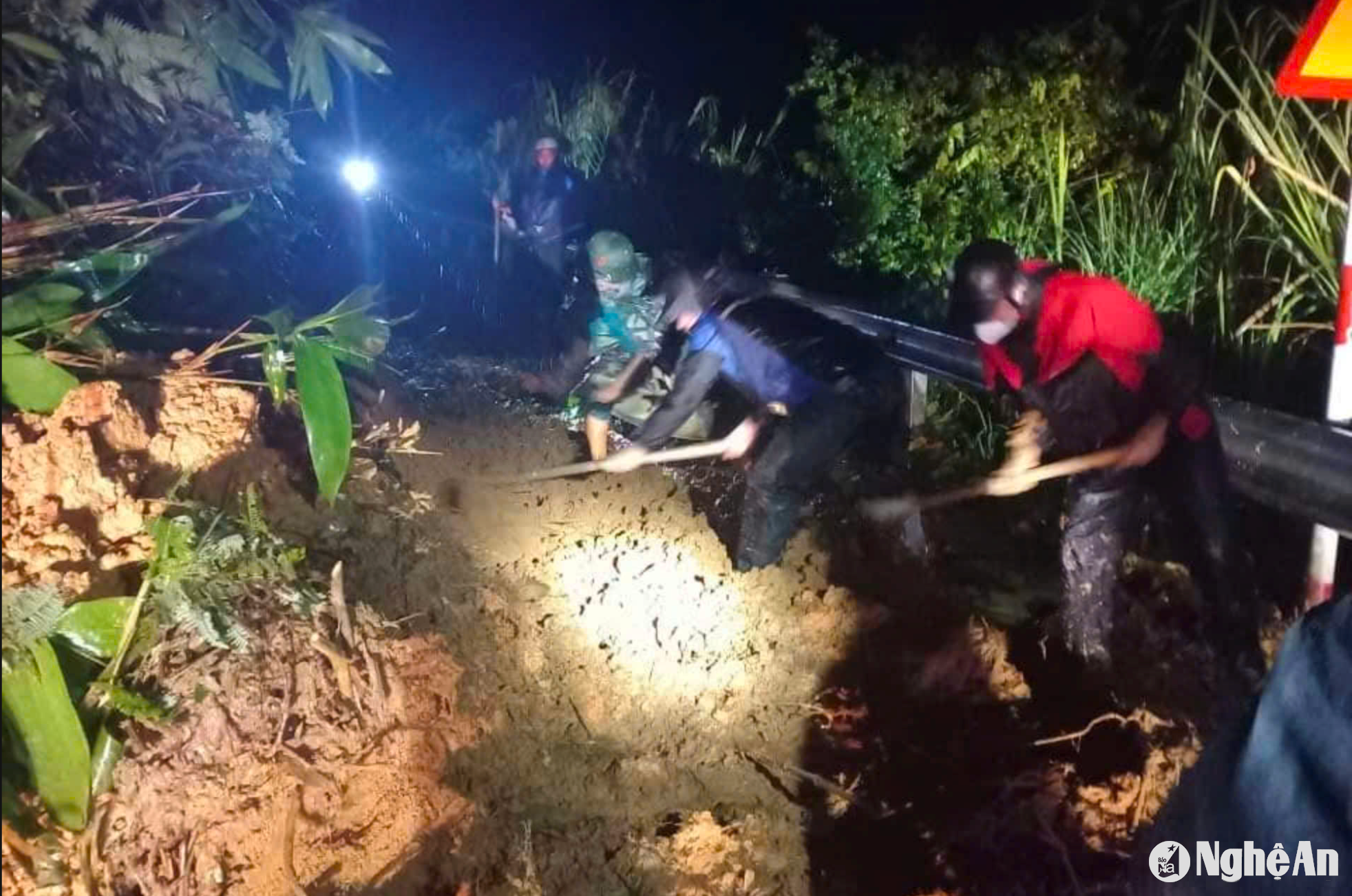Floods, landslides in mountainous areas and survival skills
Mastering survival skills is a decisive factor in protecting life and property during floods, especially in mountainous areas. The following article provides important skills to help people cope and survive in severe natural disasters.

LISTEN TO WEATHER FORECASTS AND OBSERVE NATURE:
The rainy season in mountainous and stream areas not only brings inconvenience but also poses many potential risks to ethnic minority communities living in mountainous areas. Due to the mountainous terrain and the complex system of streams, floodwaters often rise quickly and unpredictably.
One of the first and most important skills is to always stay updated with weather information, especially when the rainy season is approaching. People need to get into the habit of listening to weather forecasts from radio, loudspeakers or through information from local authorities to grasp the situation.
In addition, observing natural signs is also very important. In ethnic culture, there are many valuable experiences passed down from generation to generation. For example:
When you see thick dark clouds covering the mountain top and strong winds blowing from the stream, the possibility of heavy rain is very high.
Insects and birds moving to low-lying areas is a sign that the weather is about to change.
If the stream water becomes cloudy and foamy, it is a sign of heavy rain upstream.
CHOOSE A SAFE PLACE TO LIVE:
In mountainous areas and streams, housing choice is an important factor in coping with floods. If you live near streams, you should build your house on high ground, avoiding locations at risk of being swept away by floodwaters or landslides.
In addition, when building a house, priority should be given to building with durable materials such as stone and sturdy wood, and the floor should be high to avoid flood water.
PREPARE NECESSARY FOODS AND UTENSILS:
Before the flood season comes, people need to prepare enough food, water, and essential items. This will help avoid shortages during the days of isolation due to floods.
- Dried foods: Rice, salt, dried fish, dried meat, dried bamboo shoots are easy to preserve and can be used for a long time.
-Medicine: Preparing basic medicines such as fever reducers, antibiotics, stomach ache medicine, and folk remedies is also a very useful way to prevent illness.
-Flashlight and spare fire: Because mountainous areas often have power outages during heavy rains, flashlights and spare fire are important items for maintaining light and cooking.
SURVIVAL SKILLS WHEN ISOLATED BY FLOODS:
When the floodwaters rise and you are isolated in a hill or stream, basic survival skills will determine your survival:
- Find a safe shelter: If your home is flooded, you need to quickly move to the top of a hill or high ground. Make sure to stay away from cliffs that are at risk of landslides.
- Create a distress signal: Use fire or reflective objects to send out a distress signal if you are isolated. If possible, maintain contact by phone or walkie-talkie.
- Use safe water sources: Mountain stream water is usually clean, but during floods, the water can be contaminated. If you must drink water, try filtering it through cloth or boiling it to avoid illness.
DEALING WITH LANDSLIDES:
A major danger in mountainous areas is landslides. Landslides can happen suddenly, and to deal with this situation, people need to pay attention to the signs:
- When you hear a loud noise from the mountain, rocks and soil may be flowing down. Immediately move away from the area and find a safe shelter.
- Do not stand in low areas or near the foot of hills when it rains heavily.
FIND A SAFE ROUTE:
When having to move through stream areas during floods, people need to be extremely careful:
- Do not cross streams when the water is high, the current can be very strong and sweep away people and livestock.
- When moving, use tools such as sticks or ropes to check the depth of the water and create support.
EXPERIENCE OF LIVING WITH FLOODS AND DISEASES:
During the time of isolation due to floods, people often use folk remedies from local plants to treat diseases and maintain health. Herbs such as piper lolot, milkweed, or betel leaves are used to treat colds, stomachaches, or common symptoms caused by wet weather.
In addition, people also have experience in disease prevention:
- Use boiled leaves and roots: Drinking water from leaves and roots helps increase resistance and purify the body.
- Making fires indoors: When it rains for a long time, people often make fires continuously indoors to keep warm, avoid catching colds, and repel insects and mosquitoes.
PARTNERSHIP WITH THE COMMUNITY:
Another important skill is community spirit. People need to support each other in times of trouble, sharing food, shelter, and information about flood situations. Creating small groups to support and evacuate in time is an effective way to protect the whole community from the risk of floods.
CONCLUDE:
Survival skills in flood-prone areas in streams and mountains are extremely important for ethnic minorities. Proper preparation from choosing a safe place to live, preparing food and drinking water, to recognizing natural signs and coordinating with the community will help people overcome the flood season safely and effectively. Always stay calm, have a plan and master the above skills to protect yourself and your family from natural disasters./.
